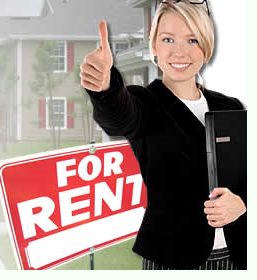Tenant Rules for Landlords
As a landlord, you expect a certain code of conduct from your tenants. It may seem obvious that respecting property, fellow tenants, and neighbors is expected from everybody. But any landlord knows that many folks need to have the rules spelled out (and even then, it can be a challenge getting their cooperation!). Make things easier on yourself and your tenants by providing a written list of rules that you require your tenants to follow.
When establishing your “house rules,” think in terms of areas pertaining to your rental property, so you can be sure to cover everything. Here are some examples of tenant rules that you might want to consider:
Exterior Areas
Garbage: Inform your tenants they must use provided garbage and recycling receptacles. State trash pickup dates, and list any fees that will be imposed for extra trash or improper disposal, according to your municipal or private trash pickup service’s rates.
Automobile and Bicycle Parking, Maintenance: Outline exactly where the tenant and their guests may and may not park their cars. Specify if a parking area for bikes is provided, or if tenants must secure them in their individual units. State whether or not automobile maintenance is allowed on the property.
Fire Hazards: State where tenants may and may not use grills or other hazardous outdoor equipment (decks, porches, etc.). You may need to restrict their use to concrete pads, or to keep them a certain distance from the building. It may seem obvious, but do state whether you allow your tenants to have bonfires, fire pits, or burn garbage on the property. Specify where gas and propane tanks should be stored.
Swimming Pool: Many municipalities require posted safety rules for pool areas. Always follow your local and state laws regarding a swimming pool. Add your own rules for who may use the pool (tenants only, or tenants and guests), age requirements, hours of operation, swimsuit guidelines (i.e., no cutoff jeans), and noise and food/beverage restrictions.
Interior Areas
Safety: State whether tenants are allowed to change any door or window locks (most landlords do not allow this). Inform your tenants that smoke detectors, fire extinguishers, and electrical outlets and/or wiring may not be tampered with. Cover the legal rules of your property: illegal drug use or sale is not allowed, tenants are not to verbally or physically threaten other tenants, and state any weapon restrictions, i.e., no guns allowed on the property.
Heat sources: if you allow space heaters, be sure to outline where and how they can be used. Or, state that they are not allowed on your property. Outline rules and guidelines for fireplaces, too. And be sure to schedule annual inspections and cleanings for your units with working fireplaces!
Alterations: Specify whether or not your tenants are allowed to change the interior of the unit. Many landlords allow small alterations, like painting, as long as the color is pre-approved and the space is returned to the original color prior to the tenant moving out. However, most landlords have stories of repainting rental units after tenants fail to do so!
Noise: Excess noise could be the most common tenant complaint. Noise levels must be addressed and enforced by the landlord to prevent problems. You can establish quiet hours, from 10:00 p.m. to 8:00 a.m., for example, but be aware that night shift workers will have problems with daytime noise, too.
Tenant Guests: You may state when and how many visitors are allowed. Inform tenants they will be responsible for visitors’ behavior and any damage caused by non-leaseholders who visit the property.
Pets: You either allow them or you don’t. If pets are allowed, you’ll want to establish a separate pet policy for your tenants with pets.
Your list of tenant rules may be short and sweet, or long and detailed. The important things to remember are that they must be provided to every tenant; the tenant must sign that they received a copy; and the rules must be enforced equally among all tenants.

